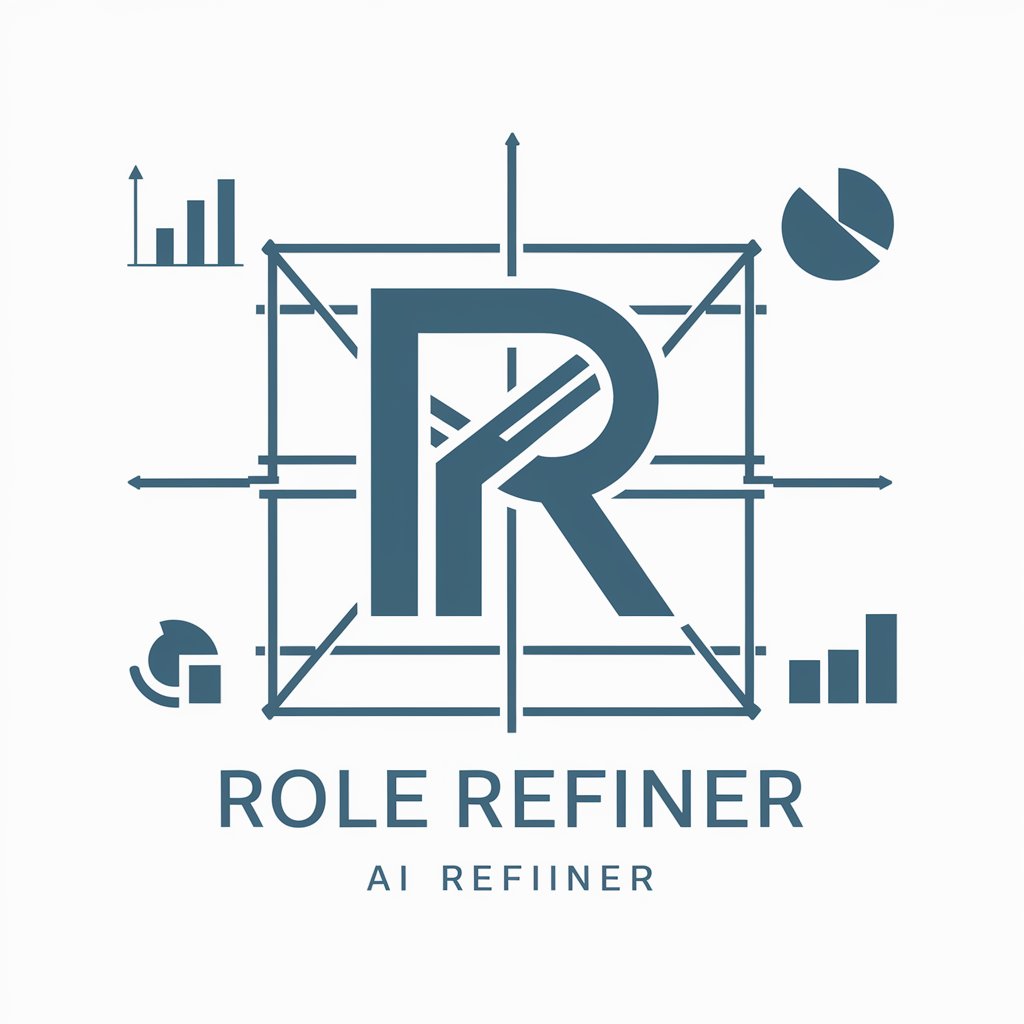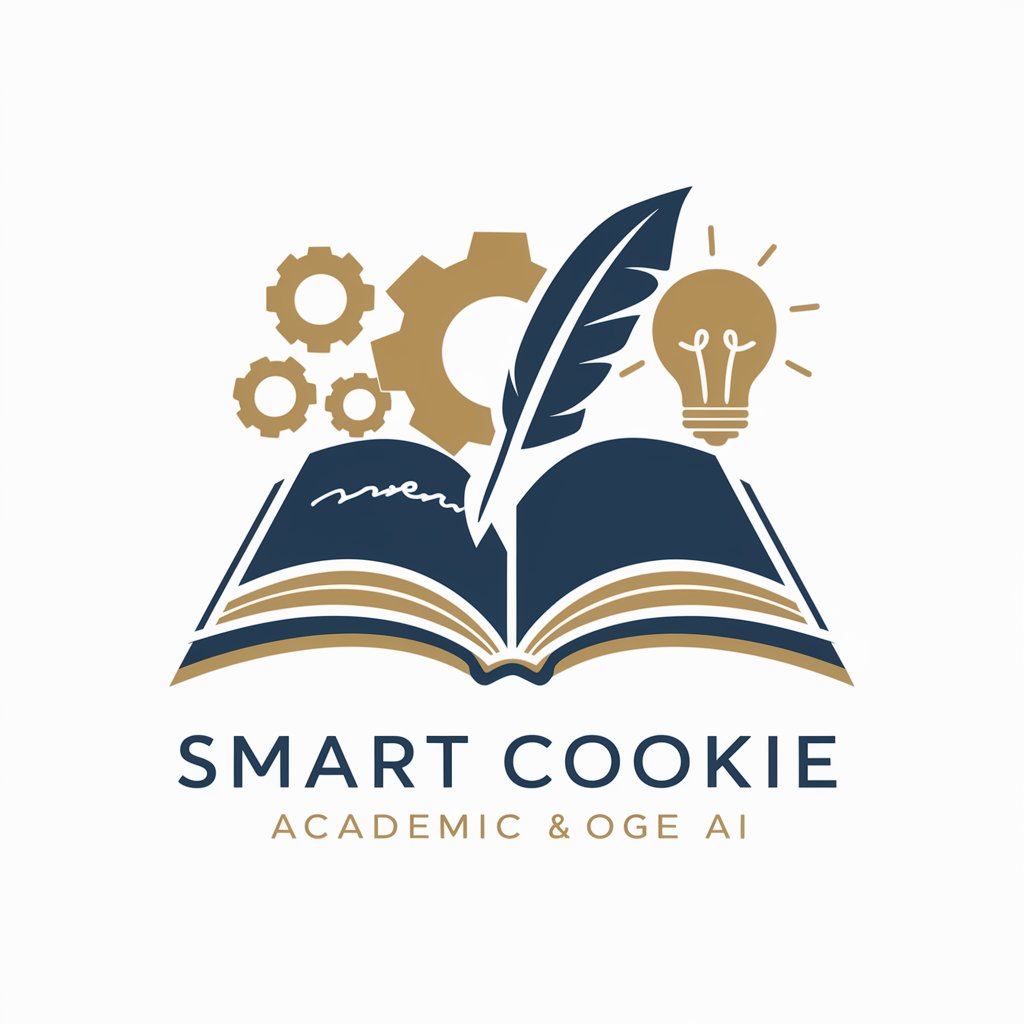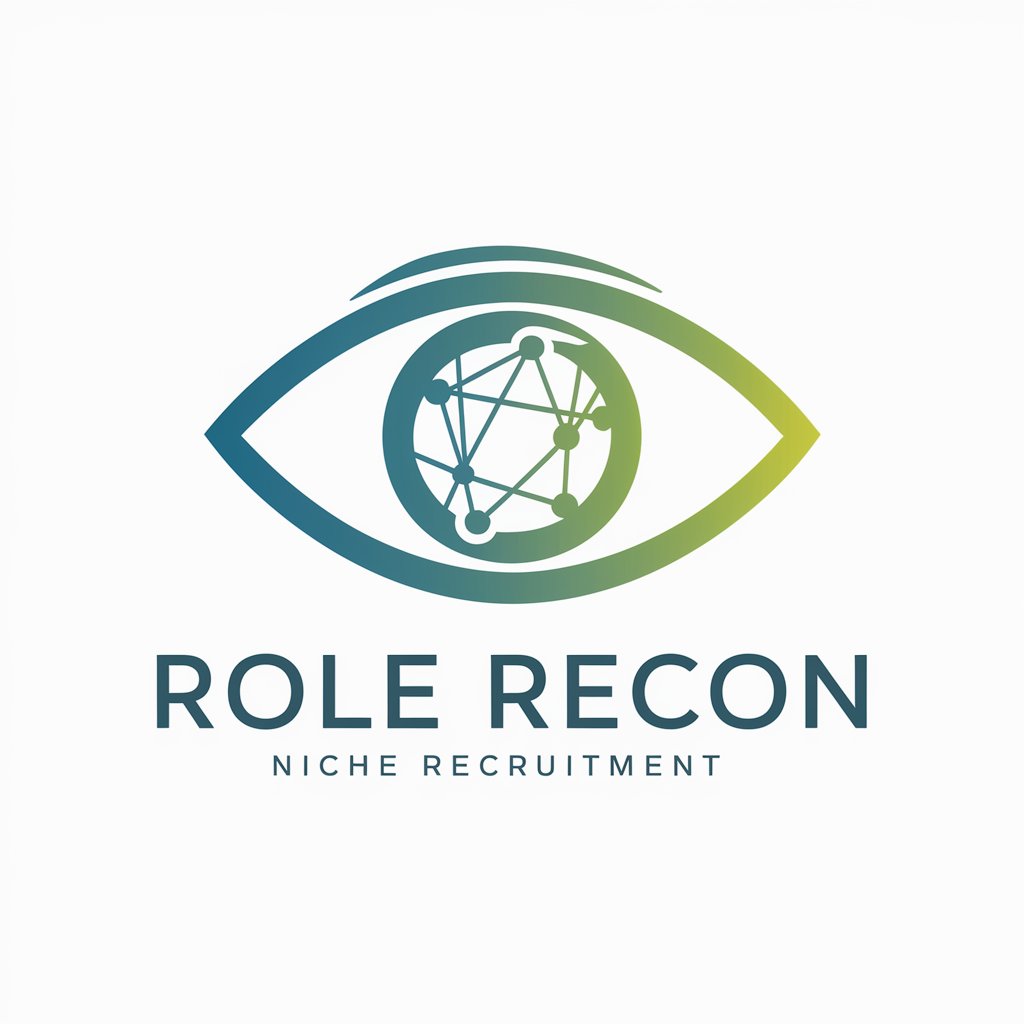Role Refiner - Job Title Standardization

Welcome! Let's standardize those job titles.
Streamline roles with AI-powered normalization
Normalize the job title
How should the role for
Standardize the following job title
What is the normalized role for
Get Embed Code
Understanding Role Refiner
Role Refiner is designed as a specialized tool to standardize and normalize job titles within datasets, improving data organization and analysis efficiency. Its primary objective is to convert a diverse array of job titles into a uniform set of standardized role names, aiding in the elimination of redundancies and inconsistencies often found in employment data. For instance, job titles such as 'Software Developer', 'Software Engineer', and 'Programmer' can all be normalized to a single standard title like 'Software Engineer'. This not only simplifies data but also enhances the accuracy of role-based analysis and reporting. Role Refiner is built to handle variations in job titles across industries and regions, providing clarity and consistency in datasets that include employment information. Powered by ChatGPT-4o。

Core Functions of Role Refiner
Job Title Normalization
Example
Converting 'Front-end developer', 'Frontend Engineer', and 'Web Developer' to 'Front-End Engineer'.
Scenario
In a scenario where a tech company is merging with another and needs to unify the job titles in their combined HR database, Role Refiner can standardize titles to streamline integration and facilitate role-based reporting.
Data Cleaning and Organization
Example
Identifying and merging duplicate entries under different titles such as 'Sales Representative' and 'Sales Consultant' into 'Sales Associate'.
Scenario
For a sales department analyzing performance metrics, Role Refiner can ensure data is accurately organized by role, allowing for more precise performance comparison and analysis across the team.
Custom Role Mapping
Example
Mapping company-specific titles like 'Chief Happiness Officer' to standard HR titles like 'HR Manager'.
Scenario
A startup wishing to transition to a more traditional corporate structure may use Role Refiner to map its unique, creative titles to standard equivalents, facilitating clearer communication with external partners.
Who Benefits from Role Refiner?
HR Departments
Human Resources professionals tasked with managing and analyzing employee data across different departments or merging companies will find Role Refiner invaluable for standardizing job titles, simplifying reporting, and enhancing data-driven decision-making processes.
Data Analysts in Recruitment
Recruitment analysts who work with large datasets to identify trends and insights in hiring practices can use Role Refiner to normalize job titles for clearer analysis, ensuring consistency across data points and improving the accuracy of their findings.
Academic Researchers
Researchers studying labor markets or employment trends can leverage Role Refiner to clean and organize dataset titles, enabling more straightforward comparison and analysis of job roles over time or across different regions and industries.

How to Use Role Refiner
Start for Free
Begin by visiting yeschat.ai to access a free trial of Role Refiner without the need for a login or subscribing to ChatGPT Plus.
Input Job Titles
Enter a list of job titles you wish to normalize. This can range from varied titles within your organization to a dataset you're analyzing for academic research.
Select Normalization Parameters
Choose your normalization preferences, such as industry specifics or the desired level of role granularity. This helps tailor the output to your specific needs.
Initiate Processing
Submit your list for processing. Role Refiner will analyze the titles and apply normalization rules to standardize the names according to your parameters.
Review and Utilize Results
Once processing is complete, review the standardized list of role names. You can use these results for organizational structuring, data analysis, or to improve hiring practices.
Try other advanced and practical GPTs
Fortune Cookie
Unveil Your Path with AI-Powered Chinese Wisdom

Cookie
Your AI-powered crypto trading companion.

Cookie Monster
Engaging Conversations with a Dash of Cookie Love

Cookie Designer
Revolutionizing Cookie Decoration with AI

Fortune Cookie
Unwrap your AI-powered fortune.

Smart Cookie
Unleashing Wisdom from Pages to Pixels

Role Advisor
Tailored Role Suggestions with AI Precision

Role Architect
Crafting Complex Characters from Text

role-playing
Unleash creativity with AI-driven role-playing

Role Playing Game Master
Immerse yourself in AI-powered fantasy worlds

Role Recon
Unlock your career potential with AI

Expert and Role Model Finder
Connecting You to Leading Experts

Role Refiner Q&A
What exactly does Role Refiner do?
Role Refiner standardizes various job titles into a uniform set of role names, aiding in data organization, analysis, and clarity across different systems or datasets.
Can Role Refiner handle titles from any industry?
Yes, it is designed to be versatile across industries. However, optimal results are achieved when users specify the industry context, as this allows for more accurate normalization.
Is there a limit to the number of titles I can process at once?
While there's technically no limit, large datasets may require more processing time. For an optimal experience, breaking down extremely large lists into smaller batches is recommended.
How does Role Refiner deal with very unique or new job titles?
It uses a combination of AI learning and a continuously updated database of job titles. For titles it can't process, it might request additional context or suggest the closest possible standardization.
Can I customize the output of Role Refiner?
Absolutely. Before processing, you can set parameters for how you'd like the titles normalized, such as the level of detail or specificity you need, based on your project's requirements.
